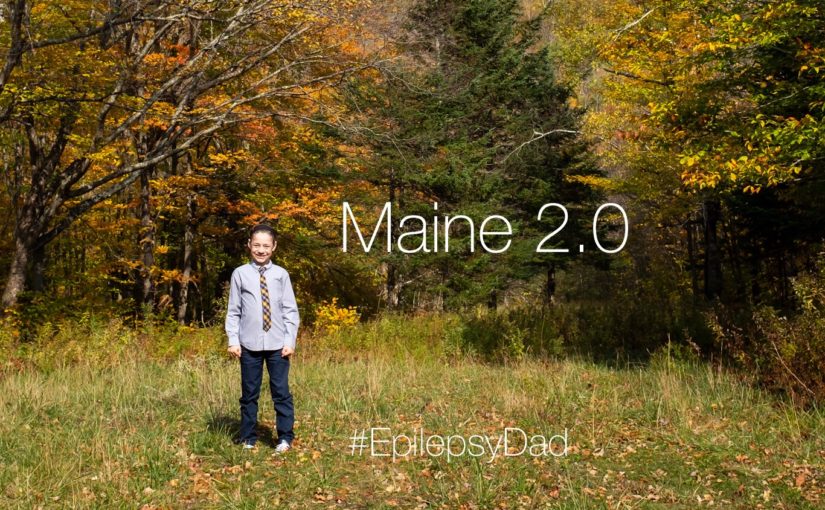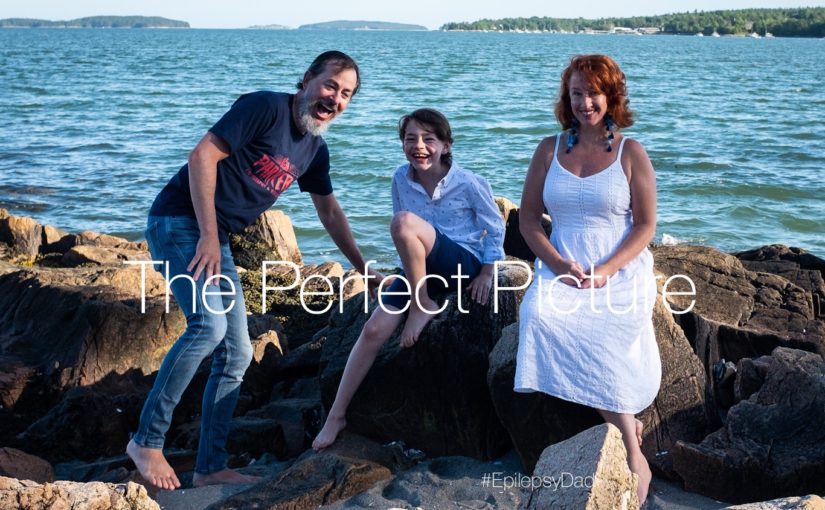Earlier this summer, we took a family trip back to Colorado.
Colorado has always been a special place for our family. My wife and I met there, were married there, and our son was born there. Even though we left when he was four, my son has maintained a strong connection to the state, especially its sports teams. His favorite teams are all Colorado teams.
The week we visited, two things were happening. First, the NHL Stanley Cup Finals were happening in Denver between my son’s favorite Colorado Avalanche and my favorite Tampa Bay Lightning. There was also a Colorado Rockies baseball game later in the week.
When we planned the trip, we wanted to attend both games. These would be our service dog Emmet’s first sporting events, but this was also our first trip flying with him.
Flying with Emmet was pretty straightforward. There was paperwork to fill out, and we talked to an airline representative when we booked the tickets, who secured us seats in the bulkhead. On some airplanes, the bulkhead usually has extra leg room, so I expected Emmet to be able to lay down comfortably during the flight. However, on the plane we were on, the bulkhead was just the first row of economy seats behind the first-class seats. There wasn’t much extra space. On the trip out to Colorado, my wife was already there, so it was just my son and me on the plane, which meant we only had two of the three seats in the row. Fortunately, the woman who occupied the third seat was extremely friendly and didn’t mind when Emmet, after much fidgeting and shuffling, finally decided to lay down under our legs.
When we landed in Denver, we were excited to get off the plane. Since the flight was a few hours long, our first stop was the pet relief area. The one in Philadelphia was tucked in a corner, fake grass with a fake fire hydrant but well maintained. The pet relief area in Denver was a different story. It was a small room that reeked of ammonia and urine. Emmet started pulling towards the door as soon as we entered the room, and, no matter how hard I tried to encourage him, he wouldn’t pee. I didn’t blame him. Fortunately, I could take him outside once we reached the baggage claim area.
The hockey game was next on the calendar. I contacted the arena to ask for guidance on bringing a service dog, and the staff was very helpful. Tickets were difficult to find, and there were no accessible seats available, but the box office suggested that we check the day of the game to see if any opened up. They didn’t.
When we got to our seats high up in the arena, we were in the middle of the row, and there was very little room between our seats and those in front of us. Emmet spent the first two periods on my lap. If you’ve never had a 60-pound dog sit and squirm on your lap for 2 hours, I don’t recommend it. But for the first two periods, besides shifting to get comfortable, he seemed to enjoy the experience, watching the players and puck move back and forth on the ice.
By the third period, though, he was growing more uncomfortable, and the arena was getting louder as the Avalanche pulled away in the score. My wife took him outside for the rest of the game, and he was much happier. So were my bruised legs. Lesson learned.
The baseball game was a different story. Emmet did great walking through the crowded stadium. We were able to secure accessible seats, which, at a baseball stadium, are generally roped-off sections at the concourse level behind the lower sections. We had folding chairs, shade, and enough space for him to stretch out comfortably and take in the game. The noise level, especially since it was outside, was much more tolerable for him, as well. Before we left, we swung by the team store and let him look at the pet section, where he selected a squeaky plush baseball bat, which he carried to the register himself.
Other than another extended delay, the return flight was much more manageable. My wife was traveling with us, so we had the entire bulkhead row for Emmet to stretch across and lay down. He settled in much easier, too, as did I, since I knew what to expect. I relaxed and watched a movie, occasionally reaching my hand down to comfort Emmet, and he fought sleep. We were all exhausted, both from the flight and from the activity-packed trip.
After we landed, we grabbed our bags, found the car, and headed home. We pulled into the driveway and unpacked the car. We left the bags in the kitchen, opening them only to retrieve our toothbrushes. We made it upstairs, washed up, changed into our pajamas, and fell into our beds. Emmet gave one last stretch and jumped into my son’s bed with him, laid his head down, and took a big, deep breath. As much of a fantastic trip as it was, full of amazing and first-time experiences, it was good to be home.

